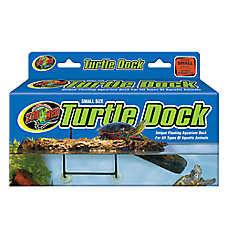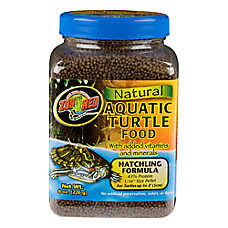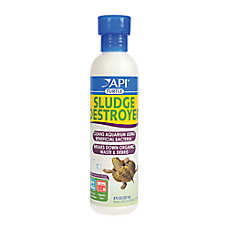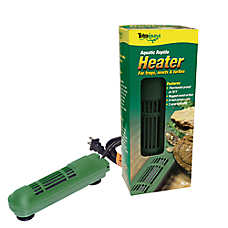Read this guide for helpful tips on preparing for your new pet tortoise.
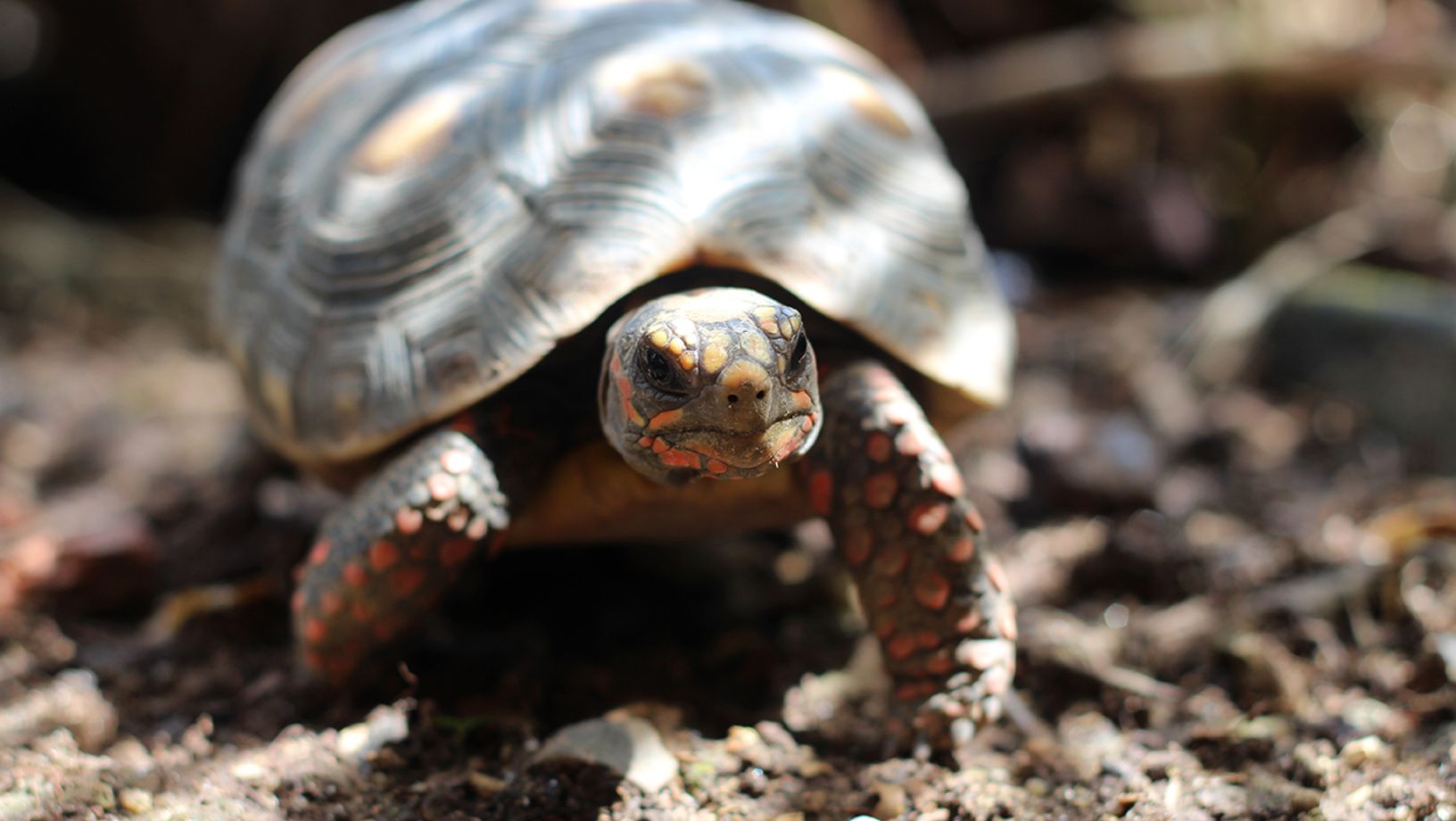
In this Article
5 things to know about your tortoise
- Tortoises can grow up to 10 inches long
- They’re vegetarians
- They live on land, and unlike turtles, they are not swimmers
- They’re cold-blooded
- They can live more than 50 years (the world’s oldest tortoise was believed to have survived until age 189!)
Your tortoise's home
Tortoises come from various parts of the world. Want more than one? Different species of tortoises get along great, but to help them come out of their shells—so to speak—group guys with guys, and gals with gals; tortoises are happier when grouped with the same gender.
Terrarium
A full-grown adult tortoise needs space to roam and will thrive in an enclosure that’s at least 50 gallons in volume. All tortoises need a well-ventilated, properly lit enclosure with a screened lid.
Lighting
Tortoises like to soak up the rays and are most active during the day. If your pet’s enclosure doesn’t get a lot of natural sun, light it for about 12 hours each day with a specially designed bulb that replicates the sun’s ultraviolet rays. Curious about your tortoise’s nighttime activities? Get a night-specific bulb to see them without disturbing their sleep.
Climate control
Keep your tortoise’s habitat toasty and damp, like the warm countries these pets come from. The degree of heat and humidity in the habitat will depend on their breed: Russian Tortoises do best in slightly warmer, drier environments with about 50% humidity; while Greek Tortoises like it slightly cooler and wetter, with up to 80% humidity.
Let your tortoise wander between climates within its habitat by keeping one side of the terrarium warmer, with a high-watt heat bulb and a nice flat rock for basking, and the other side cooler, with a big branch or other shelter for shade and privacy. A thermometer at each end of the terrarium will help you keep track of the temperature. At night, switch off the heat lamp and use a ceramic heat emitter for warmth in the dark.
What temperature range is right for your slow-and-steady pet?
Tortoise temperatures
Greek Tortoise
- Nighttime temperature should be between 65 and 75 degrees Fahrenheit on both sides.
- Daytime temperature should be between 75-85 F on the cool side.
- Daytime temperature should be between 95-105 F on the warm side.
Russian Tortoise
- Nighttime temperature should be between 65-75 F on both sides.
- Daytime temperature should be between 70-75 F on the cool side.
- Daytime temperature should be between 95-100 F on the warm side.
Tortoise tank decor
Greek Tortoises like it slightly drier underfoot. A blend of 2 or 3 inches of calcium sand with some soil or bark will make them feel right at home. For Russian Tortoises, a 2- to 3-inch layer of coconut fiber or bark bedding will help hold in humidity.
Decorate the enclosure with lots of plants and sticks. Be sure any vegetation is edible and won’t cause a tortoise tummy ache. Avoid anything steep or rickety on which your tortoise might lose their balance.
Keep the space clean by scooping waste once a week and completely changing the tortoise’s bedding at least once a month.
Help keep your tortoise healthy
Let your pet adjust to its new home for three or four days before you handle them. Keep in mind that even a settled-in tortoise can feel sick. If you notice any of these symptoms, it might be time for a trip to the vet:
- More time spent hiding in shell
- Eating or drinking less
- Weight loss
- Swollen joints
- Discharge from the eyes, nose or mouth
- Shell problems; discolored shell
- Droppings that are runny for more than two days
If you have questions about the health of your tortoise, talk to a PetSmart store associate or a veterinarian familiar with reptile health.
PETSMART CARES: Pets purchased at PetSmart are part of our exclusive Vet Assured™ program, designed by PetSmart veterinarians to help improve the health and well-being of our pets. Our vendors meet a high standard in caring for pets and screening them for common illnesses. This program also includes specific standards for in-store pet care.
The PetSmart Promise: If your pet becomes ill during the initial 14-day period, or if you’re not satisfied for any reason, PetSmart will gladly replace the pet or refund the purchase price.
Frequently Asked Questions (FAQs)
What do pet tortoises need?
Pet tortoises need at least a 50-gallon tank or larger that is 36" long with a screened lid, a daytime UVB bulb and fixture, a basking bulb/lamp, nighttime bulb or ceramic heat emitter, a habitat thermometer, a hygrometer, a spray bottle for misting, an automatic fogger, reptile carpet/bedding, a hideout, a food dish, a shallow water dish, tortoise food and calcium power.
What temperature do tortoises need?
For Greek, Russian and Hermann’s tortoises, their daytime temperature on the cool side of their habitat should be between 72-80°F (22-27°C) and 90-95°F (32-35°C) on the warm side. At night, it should be 70-80°F (21-27°C). For a red-footed tortoise, the daytime temperature on the cool side of their tortoise terrarium should be somewhere between 70-85°F (21-29°C) and their basking spot should be anywhere from 90-95°F (32-35°C). Their nighttime temperature should be 70-80°F (21-27°C). Use two thermometers, one on the cool side, the other on the warm side, to track the temperature.
How much is a pet tortoise?
The cost of a tortoise depending on the type of tortoise it is and where you buy it. For example, the average cost of a red-footed tortoise is can be anywhere from $150 to $500.
